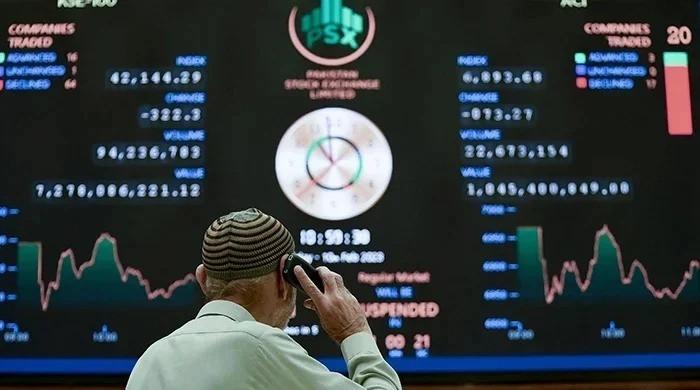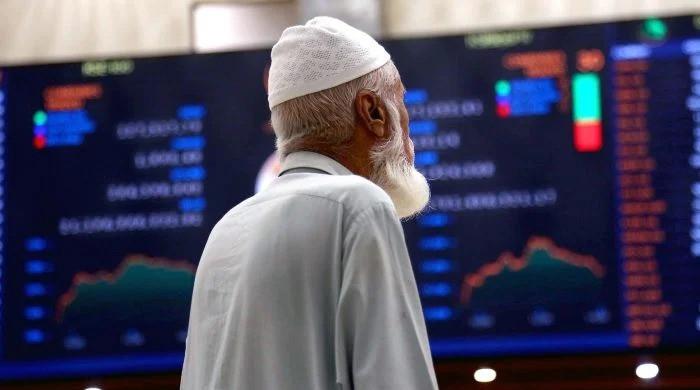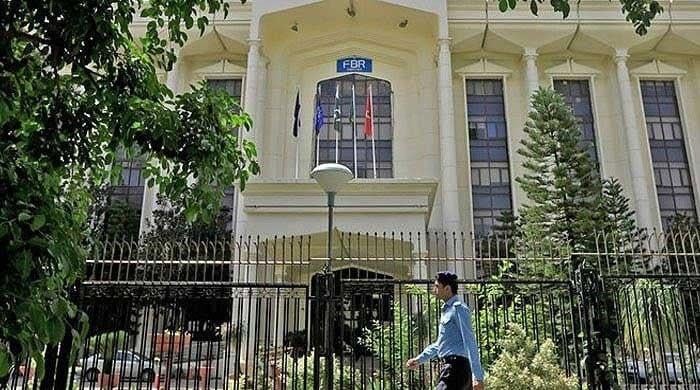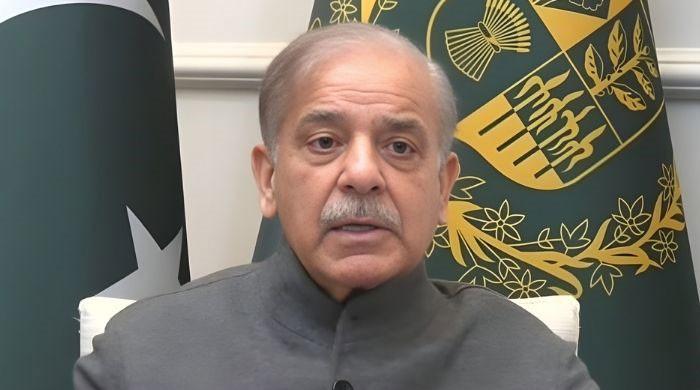SBP projects decrease in inflation, growth to pick up
SPB's decision to keep policy rate steady was a result of anticipated gradual decline in inflation
August 13, 2023
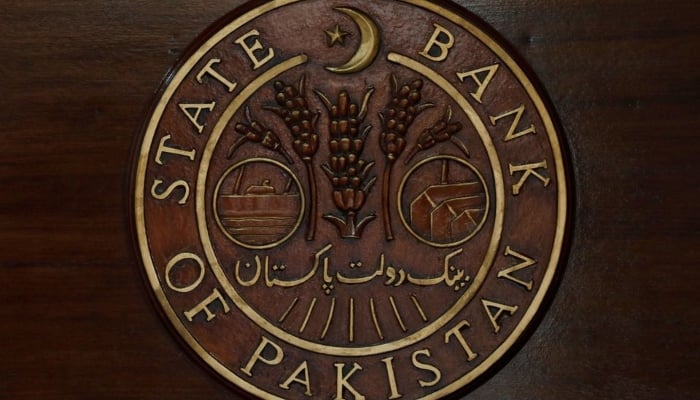
- MPC's decision was influenced by several key factors.
- Official provides insights into decisions, projected outlooks, etc.
- He provides comprehensive overview of economic landscape.
KARACHI: The State Bank of Pakistan (SBP) expects that Pakistan will see a gradual decline in inflation and an improved economic outlook, The News reported Sunday, citing a senior SBP official.
Speaking on a podcast released on Saturday, SBP's Monetary Policy Department Director Fida Hussain explained that this expectation was the basis of the bank's decision to keep its policy rate unchanged last month.
The SBP's Monetary Policy Committee (MPC) during its meeting on July 31, had decided to maintain the policy rate at 22%.
"The MPC's decision was influenced by several key factors. First, the anticipated gradual decline in inflation throughout the fiscal year 2024.
"Second, the positive trajectory of Pakistan's economy, attributed to improved investor confidence due to recent developments," Hussain said.
The podcast provides insights into the factors leading to the decision, the projected economic outlook, and the impact of various recent developments.
The latest MPC decision marked the first policy announcement after Pakistan and the International Monetary Fund (IMF) recently agreed upon a Stand-By Arrangement (SBA).
The discussion delved into the changes that have taken place since the last monetary policy announcement in June 2023.
These changes encompass crucial aspects such as the SBA agreement, the federal budget for 2023-2024, stability in global commodity and petroleum prices, and signs of stability in the global economy, it was said in the podcast.
The agreement with the IMF has led to improved market sentiments and a significant enhancement of the foreign exchange reserves of the country. Despite nominal volatility in global commodity prices, the stabilising trend indicates a positive economic atmosphere.
Moreover, business and consumer inflation expectations are on a downward trajectory, aligning with the MPC's outlook, according to Hussain.
The conversation also addressed concerns related to recent price adjustments in key sectors such as petroleum, electricity, and upcoming gas price hikes. Hussain explained that these adjustments have been factored into the MPC's decision-making process, with specific considerations about their impact on inflation.
The podcast highlighted the removal of import restrictions and its potential effects on the exchange rate and inflation.
The discussion emphasised how the current high policy rate of 22% has subdued domestic demand, thereby minimising the potential pressure on the foreign exchange rate due to the removal of import restrictions.
The podcast concluded by explaining the concept of real interest rates and their impact on economic behavior. Positive real interest rates incentivise saving and discourage borrowing, ultimately leading to lower consumption and controlled inflation.
The episode offers an insightful assessment of the reasoning behind the latest monetary policy decision, considering various domestic and global factors.
It provides a comprehensive overview of the economic landscape in Pakistan, making it an important conversation for those seeking to understand the country's monetary policy approach and economic trajectory.





